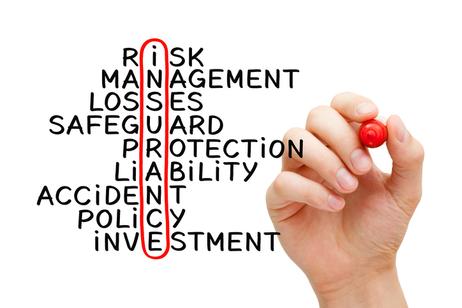Years ago, I ran a small private school with 110 students in grades 9-11. I know how many demands consume a busy administrator's attention and time. I also know firsthand how difficult it is to get the owner of a private school to spend money on even the most critical items. With that in mind, I offer the following talking points for the small private school owner and her board of trustees.
How exposed is your school?
When I asked the question, which is the title of this article, I had in mind your exposure on three fronts:
- Legal
- IT Infrastructure
- Public relations
IT Infrastructure
I will not scare you off with a lot of tech-speak regarding your IT infrastructure. But I highly recommend hiring an IT expert to review your school's IT infrastructure and make recommendations. By recommending this approach, I am a practical business person. Let's say your IT backend crashes, and you lose all your student and business data. And you have no resumption of a business plan or data backups in place. You will have a tough time making an insurance claim and getting your school back up and running.
An impartial IT consultant will confirm that your technology infrastructure has kept up with the times. Sadly, many organizations are still running Windows XP, for which support ended in 2014. Those Windows XP computers are easy targets for hackers.
You cannot treat technology like a whiteboard. Old whiteboards can be cleaned up and still have their uses. Not so old operating systems. While you can certainly repurpose an older computer to do one or two tasks provided that it is not connected to your network, even that is probably not cost-effective these days when a smartphone app can probably do what the old computer was going to do. And the smartphone app will do the job efficiently for little cost. So, listen to your IT consultant and haul those old computers and their energy-inefficient CRT monitors off to your local technology disposal facility.
Your IT consultant will also review your router and network setups. Do you remember when a router at Southwest Airlines crashed and cost the company over $10 million in lost revenue? Granted, a router crash in your small school won't create that kind of financial havoc, but it will be very inconvenient and interrupt your operations in the back office and your classrooms. Routers are all about connectivity, and losing connectivity is not a good thing.
The other item high on your IT consultant's checklist will be overall network security and hacking prevention. She will review who can access which resources on your network. She will review maintenance logs and look for gaps in your setup. She will also review your staff training for ever-present dangers such as ransomware and viruses. Unfortunately, our trusted employees cause the most successful attempts at penetrating organizations' networks. Regular training will reduce your exposure.
Do you accept credit cards for payment of fees and sundries? Your IT consultant will review PCI (Payment Card Industry) compliance procedures. What about software? Is all of your software legal? Do you have enough licenses? Your IT consultant will confirm that you do because if you don't, you risk a visit from the Software Alliance. You have seen their commercials. All it takes is one disgruntled employee or ex-employee to tip off the BSA folks, and suddenly there's an embarrassing visit from an agent asking to see all your licenses.
Your IT consultant will have several other items on her checklist specific to your school's IT situation. However, expect to see the items to which I have referred included on her list. Some of her recommendations will cost your school money, perhaps more money than you care to spend. Be that as it may, work out a plan with your board to implement her recommendations as soon as possible. That will protect you and your school.
Handling unexpected events
Unlike lesson plans and accounting, there is nothing more unpredictable than unexpected events. Depending on how you handle these can have an enormous impact on your school and its reputation. Let's start with weather-related events. Blizzards, thunderstorms, ice storms, tornadoes, and so on can wreak havoc on your school community and facilities. Have protocols in place ready to go when the weather might be an issue. Set up and use a school notification system. Text messages, phone calls, and social media postings are all part of your school notification mix. Always try to be ahead of the wave with facts and timely updates. This is very important when there has been a disaster. As always, take time to train the staff and parents who will implement your school notification system.
Insurance
Review your school's insurance requirements annually. Your insurance agent will probably be well aware of your needs. Implement her recommendations. If necessary, obtain another quote for comparison purposes. Understand what is covered and what is not. All it takes is one event occurring for which you have no or inadequate coverage to ruin your school financially.
How exposed is your school? Hopefully, your school's exposure will be minimal and manageable after you review the items outlined above. Don't put off this annual review. Your school's reputation and, indeed, its future is at stake.
Questions? Contact us on Facebook. @privateschoolreview
























